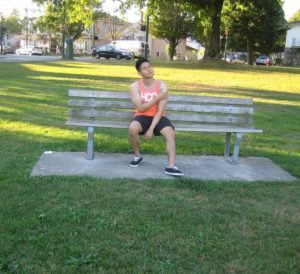A dislocated shoulder occurs once the ball of the humerus is forcefully driven out of its normal alignment on the shoulder socket. The injury is generally associated with intense pain and inability to move the arm until it is restored back into its socket.
What are indications?
- Shoulder pain
- Repetitive episodes where the shoulder is about to “give out”
- Continuous sensation where the shoulder feels loose or slipping in and out of the joint
- Pins and needles sensation or numbness
- Inability or difficulty in moving the shoulder in certain positions

Continuous sensation where the shoulder feels loose or slipping in and out of the joint.
Management of a dislocated shoulder
Take note that both acute and repeated cases of a dislocated shoulder are generally managed initially using conservative measures.
- If the shoulder did not relocate itself naturally, it is vital to bring the individual to the nearest healthcare facility for an X-ray to rule out fractures. Once done, the shoulder is reduced to its normal position by the doctor.
- When managing the pain, the doctor will recommend a shoulder sling to support and immobilize the shoulder. As for the inflammation, the application of ice and adequate rest are recommended.
- Strengthening of the rotator cuff muscles and shoulder blade stabilizers is required.
- Once the pain and inflammation settles and the ligaments start to recuperate, the normal range of motion, muscle length, resting muscle tension and neural tissue mobility is restored.
Always bear in mind that a dislocated shoulder might recur if the rehabilitation program was not strictly followed. Aside from muscular control, the physiotherapist will also assess shoulder biomechanics and correct any deficiencies.
Quick Note / Disclaimer
The material posted on this page on a dislocated shoulder is for learning and educational purposes only. To learn to recognize and manage joint injuries, register for a first aid and CPR course with Saskatoon First Aid.

